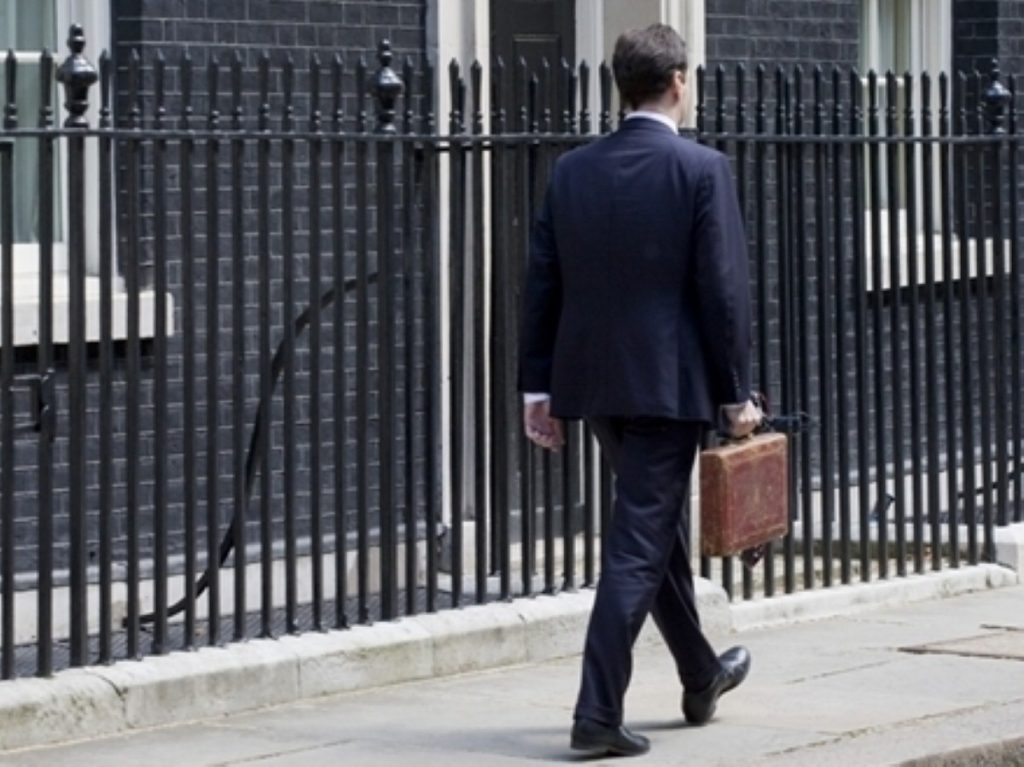Sketch: Pallid Osborne’s horror Budget
The nation’s politics descended into bitterness as queasy, uneasy MPs listened to George Osborne’s emergency Budget.
The chancellor must have dreamed of this moment ever since he first became shadow chancellor five long years ago. Little did he realise then he would be slashing rather than tinkering. “It pays for the past and it plans for the future,” he said at the start, before his voice descended into a quavering croak.
We were not subjected to the fevered, delirious Osborne who confronted his party with such grisly determination at last year’s autumn conference. Instead this was the parliamentary Osborne, the assured performer brought up on confident oratory. He looked pale and, perhaps deep inside, a little uncertain. If anything that only drove him to sneer all the more. “We have paid the debts of a failed past,” he hissed.


This was one of the best-delivered Budget speeches for years, after first Gordon Brown and then Alistair Darling developed the art of turning one of the most important occasions of the political calendar into a dirge. He was especially successful at ridiculing the previous government, confirming that the golden rule would be missed by £485 billion and that the euro preparation unit within the Treasury was being axed. Its staff, Osborne said laconically, were being “redeployed to more productive activities”.
Labour MPs, who seemed unable to see the funny side, were seething with frustration as Osborne’s speech entered its more sinister sections. Their volatile dissent broke out into open horror during the benefits section. Osborne bombarded them with a serious of cuts to the welfare system, which under New Labour had been slowly growing, like a coral reef, over many years.
This kind of angry disorder is rarely seen in the Commons. Were we in danger of the session dissolving into ugly scenes more common in, dare we say it, less mature parliaments? Harriet Harman, who has been awful in recent prime minister’s questions, responded in a suitably disgusted tone.
“We’ve seen it all before,” she barked. We were told the men and women of Coventry – or their equivalent, at least – would find themselves out of work. The partisan contempt towards the Lib Dems was overwhelming. “Surely they cannot vote for this!” she spat. The orange section of the government didn’t look entirely happy doing so.
With the exception of Nick Clegg, who nodded desperately every time anything roughly approximate to items from his party’s manifesto appeared, the coalition’s junior partners listened with dull resignation as they realised the full extent of the cuts being made. Polls have shown the public are beginning to come round to the need for spending cuts. Judging by the looks on their unhappy, trapped faces, a poll of Lib Dem MPs might have offered a different result.
Tim Farron, who lost the recent deputy leadership vote, sat up in the gallery grinning and shaking his head by turns. Miserable Bob Russell, perhaps tired of gritting his teeth, appeared to prefer the sweet embrace of sleep to Harman’s heckling. Only a handful of Lib Dem MPs joined the Conservatives as they cheered and waved their order papers when Osborne finished speaking.
It didn’t seem as if Liberal support for this Budget would be what makes or breaks it. Many Tory MPs seem able to forget about the Lib Dems altogether, but Russell and co seemed to be struggling under a very great weight.
“We’re all in this together”, the chancellor’s rallying call, didn’t seem to fit the bill. As the impending cuts became very real, the turbulent emotions of the Commons began a new era of bitter austerity in British politics. The reality is, perhaps, more horrible for many MPs than they had feared. Will the coalition stand the strain? Perhaps another Osborne catchphrase will become more appropriate: “We can’t go on like this.”
In the new era of austerity, coalition politics is going to be dominated by the discomfort which pervaded the air of the Commons today.

